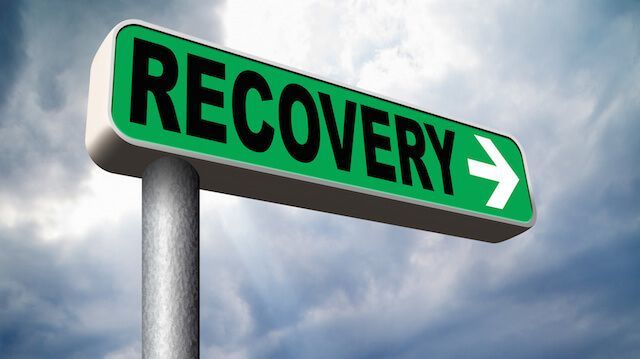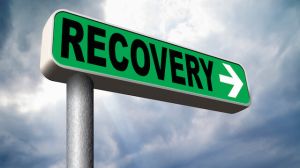
For so many people, chronic illness is a daily fact of life. Usually, these chronic illnesses mean frequent painful flare-ups that are worse than most healthy people can begin to imagine.
Depending on the illness in question, most flare-ups can last from hours to days, and some even weeks. Then begins the process of trying to recover and get back to “normal.” If you suffer from these flare-ups, take heart, there are some things you can do to help the recovery process:
Realize you need to pace yourself
Many flare-ups can be triggered by stress and over-exertion. The best thing you can do is to take it slowly when you’re recovering. Don’t push to catch up on all the things you fell behind on. Make a reasonable list of goals for each day and if you accomplish one or two of them, be content with that until you are fully back on your feet. Be sure to take short frequent rest periods every day, and try to get restful sleep each night.
Rebuild your strength gently
When you are forced to do nothing but rest during a flare-up, you will naturally come out of it feeling run down and weaker than normal. The last thing you want to do is push yourself back into a rigorous exercise routine trying to regain strength and endurance. Some people who routinely practice gentle exercises like tai chi and yoga may be able to continue minimal workouts during a flare-up, but for those who don’t, it’s important to start slowly. Take short walks the first few days and just do a few gentle stretches.
Catch up with the people you care about
One of the most difficult aspects for people with chronic illness is the loneliness. Unless someone has a chronic illness themselves, it is impossible to understand the full scope of how debilitating it can be. It steals away your quality of life like few other things can. It undermines all your relationships because it severely limits your ability to participate in many everyday activities and events that healthy people take for granted. This is why, during flare-ups, it is particularly easy to lose touch with those you love. So as soon as the recovery begins, it is important to start reaching out to people again. Make one or two phone calls a day, or send at least two short emails to make contact with the people in your life. Emotional support is some of the most powerful medicine in the world. It is soothing to your soul to know you are not alone and are loved.
Comfort yourself frequently
 Let’s be honest, healthy people are not likely to ever deal with the same amount of pain and exhaustion that you do during a flare-up. This is exactly why you should pamper and comfort yourself frequently. If possible, arrange to get a massage to help loosen up tight muscles and encourage flexibility. Take longer showers or baths to relax lingering soreness and improve circulation. Fill your home with pleasing scents from essential oils, scented candles, or flowers. Your state of mind has a lot to do with your overall well-being, so surround yourself with things to feel good about.
Let’s be honest, healthy people are not likely to ever deal with the same amount of pain and exhaustion that you do during a flare-up. This is exactly why you should pamper and comfort yourself frequently. If possible, arrange to get a massage to help loosen up tight muscles and encourage flexibility. Take longer showers or baths to relax lingering soreness and improve circulation. Fill your home with pleasing scents from essential oils, scented candles, or flowers. Your state of mind has a lot to do with your overall well-being, so surround yourself with things to feel good about.
Tackle your checklist of pleasurable life moments
Dealing with frequent, recurrent pain the way people with chronic illness do, can often lead to depression. At the very least, it hangs a dark cloud over many aspects of your life. This is why it is important to keep in mind the things you can easily enjoy about life. Make a list of experiences that rejuvenate you, like soaking up the sun in your favorite park, watching the latest movie release at the local theater, taking in a play at the nearby college, spending an hour or two shopping in a small bookstore, or whatever it may be.
Above all else, always be kind to yourself. There is no need to push, rush, or bully yourself into things you are not ready for. Take the time you need and enjoy each good moment for the blessing that it is.
— Kirsty Toth
Kristy is a freelance writer with more than twenty years of print and digital media writing experience and over seven years of university study in journalism, broadcasting, and mass communications. She specializes in health and wellness, alternative healing methods, news, the environment, and lifestyles. She currently resides in the Upper Peninsula of Michigan with her family and pets.
Sources:
http://www.huffingtonpost.com/ilana-jacqueline/chronic-illness-how-to-repair-your-life-after-a-flare-up_b_7477562.html
http://www.cfidsselfhelp.org/library/11-minimizing-relapses
http://www.cfshealth.com/10-ways-to-avoid-setbacks-and-flare-ups-with-m-ecfs-fibromyalgia

